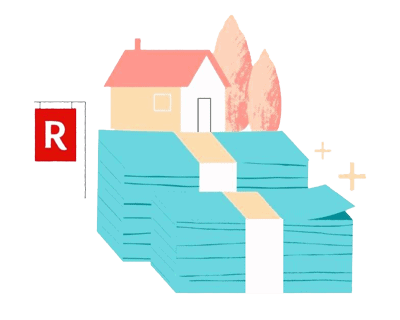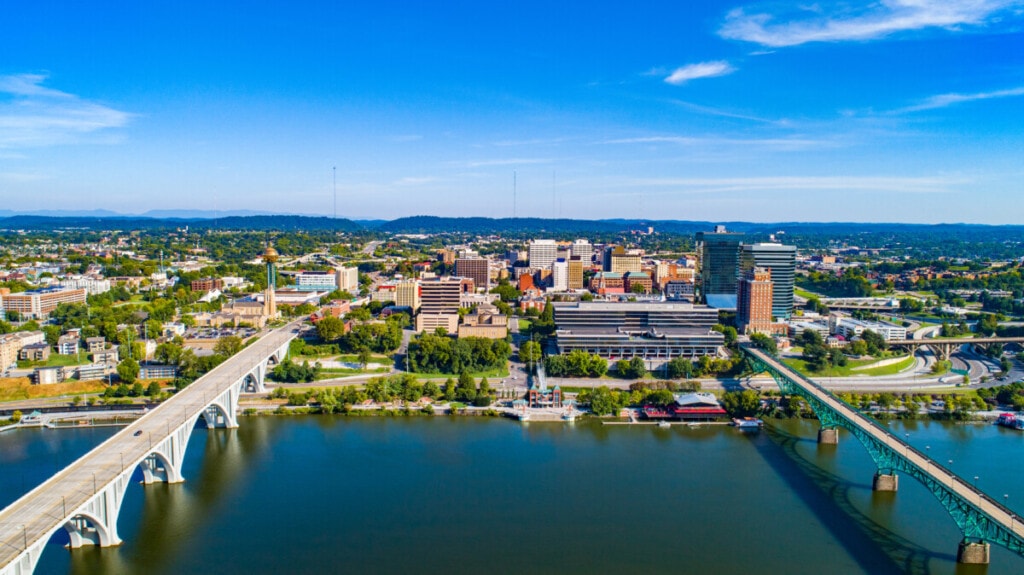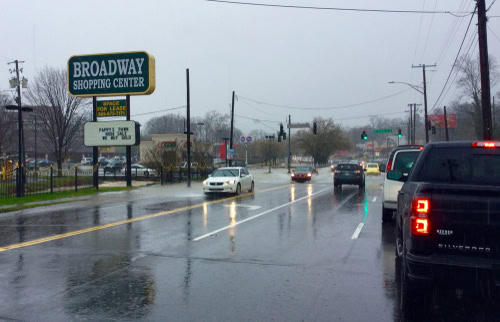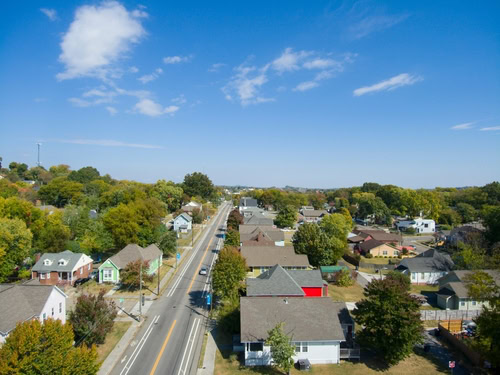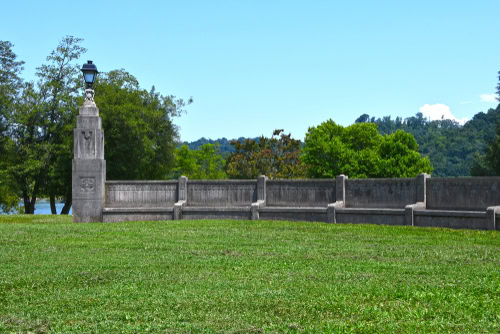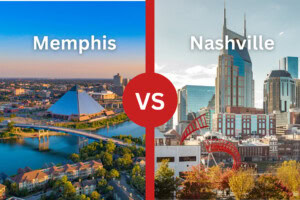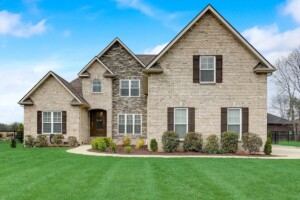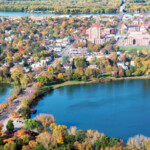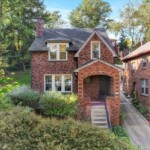Knoxville, Tennessee, is a city that offers residents a variety of benefits, from an affordable cost of living to a vibrant arts and culture scene. Knoxville also ranks as one of the top 10 fastest-growing cities in Tennessee. However, like any city, there are also some downsides to consider, such as limited public transportation, nightlife and shopping options, hot summers, and higher sales tax. In this Redfin article, we will explore the pros and cons of living in Knoxville, and give you a complete rundown to help you decide if Knoxville is a good place to live. So whether you’re looking at apartments in Knoxville or thinking of buying a home in the city, we’ve got you covered with all the information you need to know.
Interested in moving to Knoxville? Check out:
Homes for sale in Knoxville, TN | Apartments for rent in Knoxville, TN | Houses for rent in Knoxville, TN
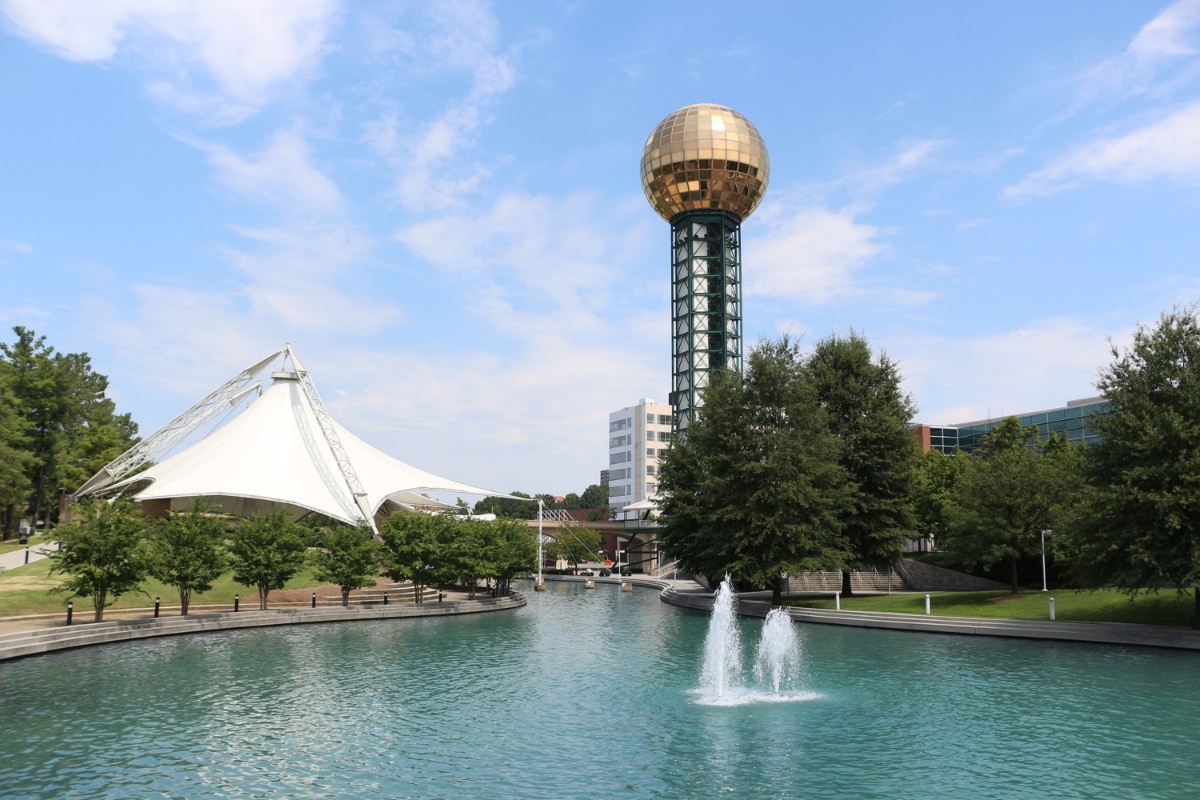
Quick Facts about Knoxville
| Median home sale price | $334,701 |
| Average monthly rent | $1,387 |
| Walk Score | 31/100 |
| Transit Score | 27/100 |
| Bike Score | 30/100 |
1. Pro: Affordable cost of living
The cost of living in Knoxville, is quite low – in fact, it’s 13% lower than the national average. In stark contrast, Nashville, located approximately 170 miles to the west, is renowned for its higher living costs, boasting a 14% higher cost of living compared to Knoxville. A key driver behind Knoxville’s affordability is its reasonably priced housing market. For instance, the median sale price in Knoxville stands at $334,701, which is lower than the national median of $442,451. These figures underline Knoxville’s appeal as a more cost-effective city, empowering residents to maintain a comfortable lifestyle while enjoying substantial savings, particularly in the housing sector.
2. Con: Limited public transportation
Unlike larger cities such as Manhattan, Knoxville’s public transportation system is limited. With a Transit Score of 27, the city only has a few bus routes and no commuter rail service. While the city is compact and walkable in some areas, getting around without a car can be challenging, particularly for those living in outlying areas. This may be a barrier for some residents who rely on public transportation to get to work or run errands.

3. Pro: Vibrant arts and culture scene
Knoxville’s vibrant arts and culture scene offers numerous museums, galleries, theaters, and festivals. The city is home to the Knoxville Museum of Art, the Clarence Brown Theatre, the World’s Fair Park, and the Sunsphere, among others. It also hosts several cultural festivals, such as the Dogwood Arts Festival and the International Biscuit Festival. Knoxville’s rich history and commitment to the arts provide residents and visitors with diverse cultural experiences.
4. Con: Limited nightlife
Knoxville’s nightlife is limited compared to larger cities, with fewer bars, nightclubs, and entertainment venues. While some popular spots exist in areas like Market Square and Old City, the city may not have the same variety and excitement as larger urban centers. However, Knoxville does have a thriving music scene, with many local bands and musicians performing at smaller venues throughout the city. Additionally, the city hosts several cultural events and festivals throughout the year, which may offer opportunities for evening entertainment.
5. Pro: Beautiful natural scenery
The Great Smoky Mountains surround Knoxville, providing residents access to beautiful natural scenery. The city is a hub for outdoor activities such as hiking, biking, and kayaking, and its numerous parks and greenways offer opportunities for residents to enjoy the outdoors. From scenic drives in the mountains to exploring the Tennessee River, Knoxville’s natural beauty provides residents a peaceful retreat from city life.

6. Con: Limited shopping options
For those who love to shop, options may be limited in some areas, with fewer high-end retailers and luxury shopping destinations compared to larger cities. While the city has several shopping centers and malls, including West Town Mall, some residents may need to travel outside the city for more diverse shopping experiences. However, Knoxville does have a solid local retail scene, with many unique boutiques and shops offering handmade and one-of-a-kind items.
7. Pro: Diverse job opportunities
There are diverse job opportunities across many industries, including healthcare, education, manufacturing, and technology. With the University of Tennessee and Oak Ridge National Laboratory located in the city, Knoxville has an intense research and development sector. The city is also home to several major companies, such as Pilot Flying J, Bush Brothers & Company, and Regal Entertainment Group. Whether you are starting your career or looking for a change, Knoxville offers a variety of options for jobseekers.

8. con: Hot summers
Knoxville experiences hot summers, with average high temperatures in the 80s and 90s (°F) from May to September. Humidity can also be high, making the heat feel more intense. This may be uncomfortable for some residents who are sensitive to the heat, particularly those who do not have access to air conditioning. However, the city’s proximity to the Great Smoky Mountains provides opportunities for outdoor recreation in cooler mountain temperatures, and many indoor attractions and activities offer respite from the heat.
9. Pro: Convenient location
The city is conveniently located in the heart of the Southeastern United States, providing easy access to major cities like Nashville, Atlanta, and Charlotte. The city is served by McGhee Tyson Airport, making air travel convenient for residents and visitors alike. Knoxville is also situated at the intersection of various major highways, including I-40 and I-75, making it easy to travel by car.
10. Con: Higher sales tax
Tennessee’s sales tax is notably higher than the national average, hovering around 7%. In comparison, most states have a sales tax rate within the 4-7% range. Tennessee’s high sales tax rate can impact residents’ purchasing power and overall cost of living. Knoxville has a combined sales tax of 9.25% when factoring in state, county, and city sales tax rates.
Methodology: The median home sale price and average monthly rental data is from the Redfin Data Center. The Walk Score, Transit Score and Bike Score data is from Walk Score.

